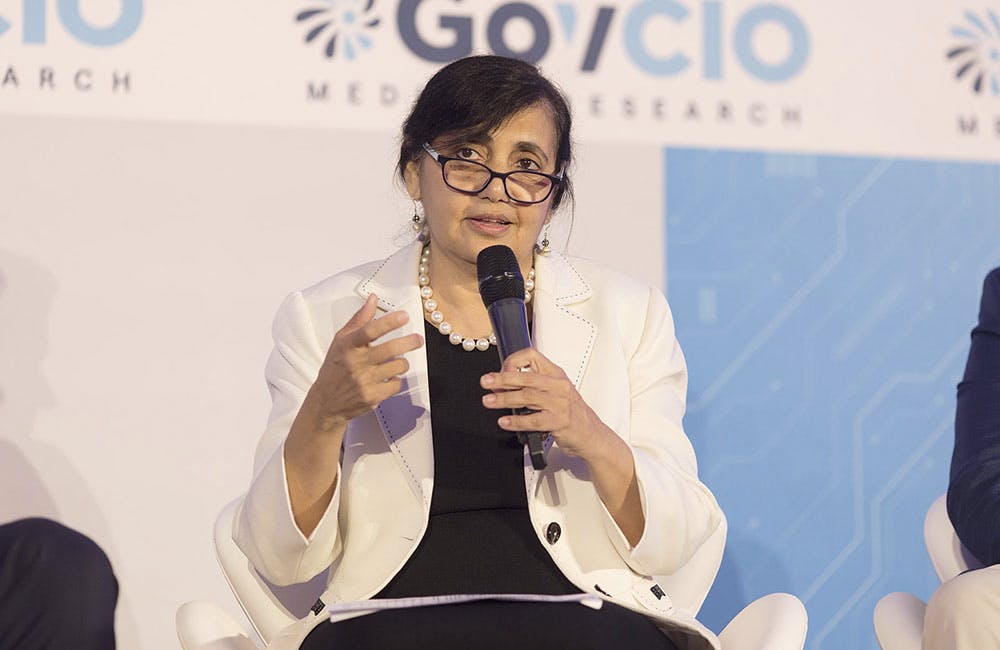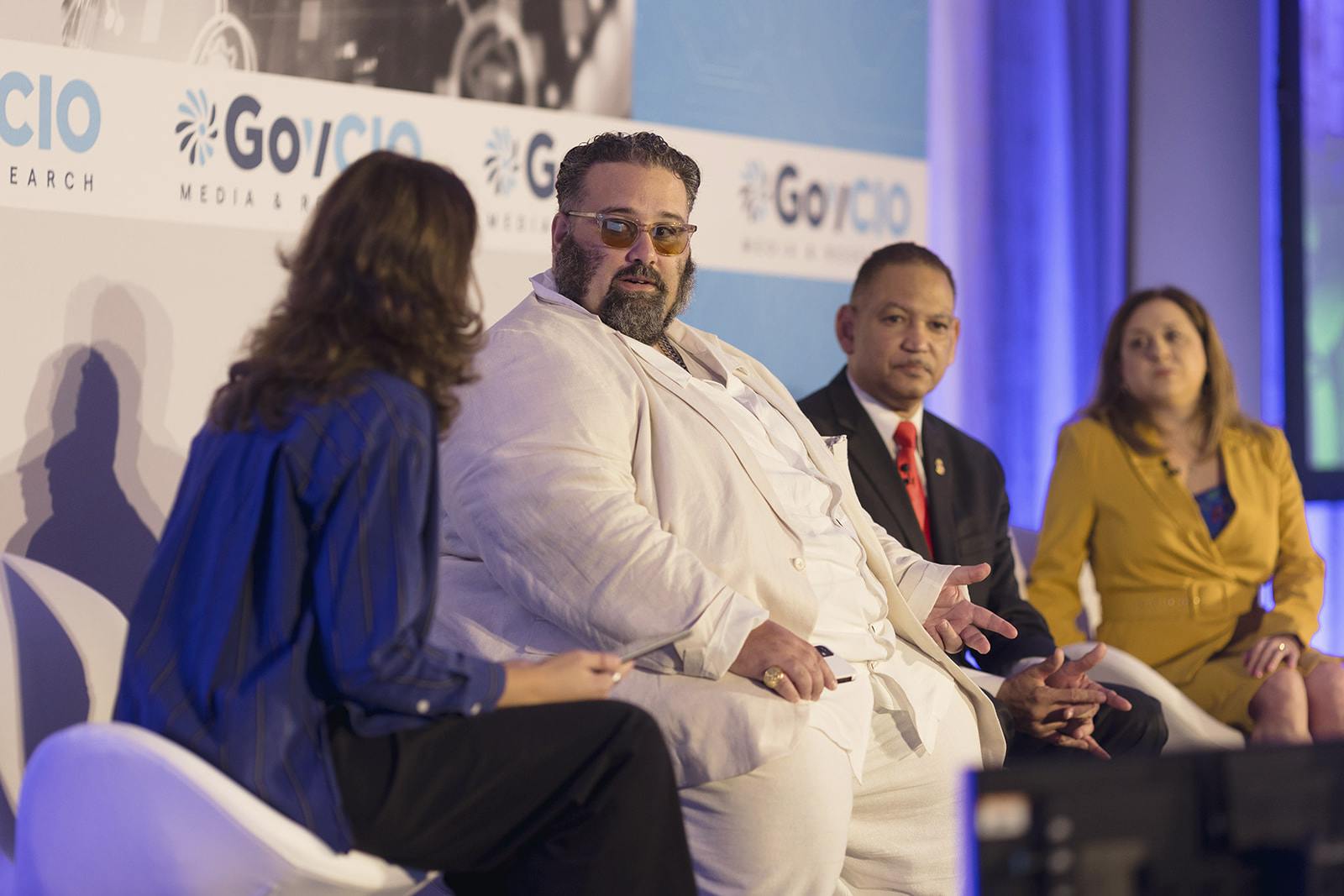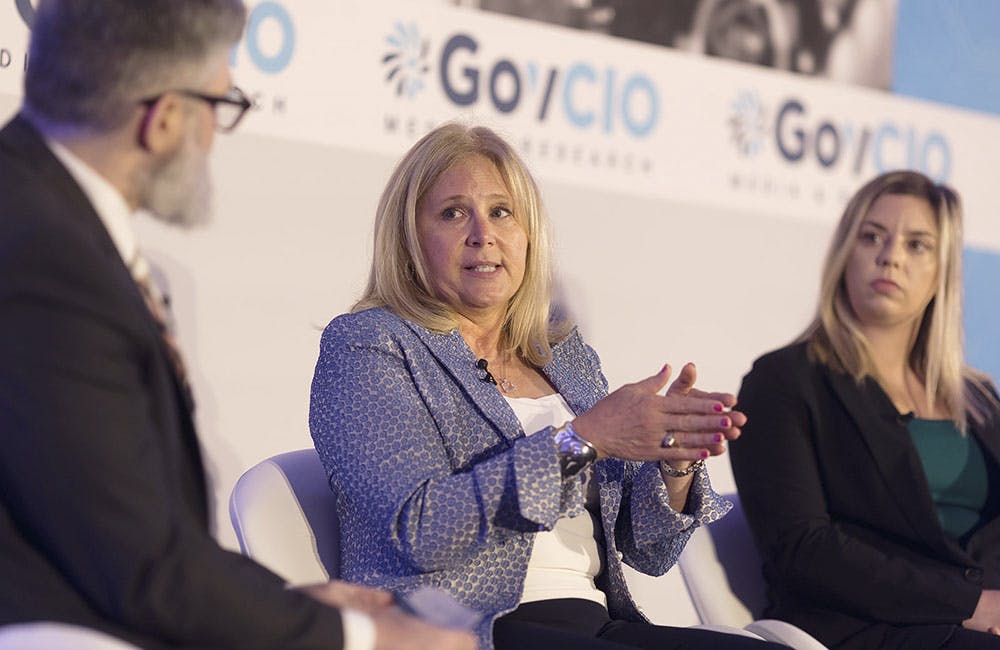HHS AI Chief Calls for Collaboration in Strategy Execution
The agency is looking to build an AI ecosystem that drives innovation and harnesses data’s potential.

The Department of Health and Human Services’ Artificial Intelligence Strategy is driving its four focus areas forward with a central theme of collaboration, the agency’s Chief AI Officer Oki Mek said during NVIDIA’s virtual event last week.
Released in January, the strategy aims to enhance the health and wellbeing of all Americans. The strategy has four main focuses, which include forming an AI Council, AI Community of Practice, governance and compliance, as well as support for research and development in AI.
Across those four focus areas, Mek said collaboration and idea-sharing are the best approaches his agency can take in accomplishing its mission with AI. He emphasized this point especially in the first focus of the AI Strategy — the formation of the AI Council.
“I believe AI is a team sport,” Mek said. “We want each operating division and staff division across the department to have a voice with how the department is carrying out the AI strategy. We believe in collaboration. We stand to learn a lot from one another. Since AI is not confirmed to just technology, the more I learn, the more I realize how much I don’t know much in this domain.”
Collaboration also means focusing on inclusion, in that different people have different perspectives on privacy, data, security and human-centered AI, Mek said, highlighting the AI Community of Practice’s cooperative nature.
“We want to celebrate AI initiatives, share lessons learned, promote best practices, establish an AI playbook that is targeted at the health sector and focus on two biggest obstacles in AI: data acquisition or collection and data preparation,” Mek said.
The third focus, establishing governance and compliance around AI, will ensure that HHS does not violate any policies or regulations around privacy, ethics, legality, code bias, IT and IT security, as well as acquisition. Then the research and development focus will create a testbed to lower risk for HHS personnel to explore AI.
These last two are also collaborative in nature, contributing to HHS’s “spoke and wheels” centralized model for AI development, Mek said.
“We want to change the mindset from, ‘We don’t want to share data’ mantra to ‘we must share data,’” Mek said. “There has to be [a] hard justification why data is not being shared. Without data, there’s no AI.”
Mek stressed that as HHS executes the strategy, the agency must continue to push for transparency, trustworthiness, bias prevention and data provenance across all its AI initiatives, since the strategy and collaboration behind it must ultimately serve the public interest.
“What we do with AI must benefit society,” Mek said.
This is a carousel with manually rotating slides. Use Next and Previous buttons to navigate or jump to a slide with the slide dots
-

Inside DOD’s Push to Grow the Cyber Workforce Through Academia
Diba Hadi gives her first interview since becoming principal director of the DOD’s Cyber Academic Engagement Office.
15m listen -

Agencies Tackle Infrastructure Challenges to Drive AI Adoption
Federal agencies are rethinking data strategies and IT modernization to drive mission impact and operational efficiency as new presidential directives guide next steps.
5m read Partner Content -

Generative AI Demands Federal Workforce Readiness, Officials Say
NASA and DOI outline new generative AI use cases and stress that successful AI adoption depends on strong change management.
6m read -

The Next AI Wave Requires Stronger Cyber Defenses, Data Management
IT officials warn of new vulnerabilities posed by AI as agencies continue to leverage the tech to boost operational efficiency.
5m read -

Federal CIOs Push for ROI-Focused Modernization to Advance Mission Goals
CIOs focus on return on investment, data governance and application modernization to drive mission outcomes as agencies adopt new tech tools.
4m read -

Fed Efficiency Drive Includes Code-Sharing Law, Metahumans
By reusing existing code instead of rewriting it, agencies could dramatically cut costs under the soon-to-be-enacted SHARE IT Act.
5m read -

Agencies Push Data-Driven Acquisition Reforms to Boost Efficiency
New initiatives aim to increase visibility of agency spending, improve data quality and create avenues to deploy solutions across government.
5m read -

Data Transparency Essential to Government Reform, Rep. Sessions Says
Co-Chair of the Congressional DOGE Caucus Rep. Pete Sessions calls for data sharing and partnerships to reduce waste and improve efficiency.
5m read -

DOD Turns to Skills-Based Hiring to Build Next-Gen Cyber Workforce
Mark Gorak discusses DOD’s efforts to build a diverse cyber workforce, including skills-based hiring and partnerships with over 480 schools.
20m listen -

AI Foundations Driving Government Efficiency
Federal agencies are modernizing systems, managing risk and building trust to scale responsible AI and drive government efficiency.
40m watch -

Trump Executive Order Boosts HBCUs Role in Building Federal Tech Workforce
The executive order empowers HBCUs to develop tech talent pipelines and expand access to federal workforce opportunities.
3m read -

Navy Memo Maps Tech Priorities for the Future Fight
Acting CTO’s memo outlines critical investment areas, from AI and quantum to cyber and space, as part of an accelerated modernization push.
5m read
















